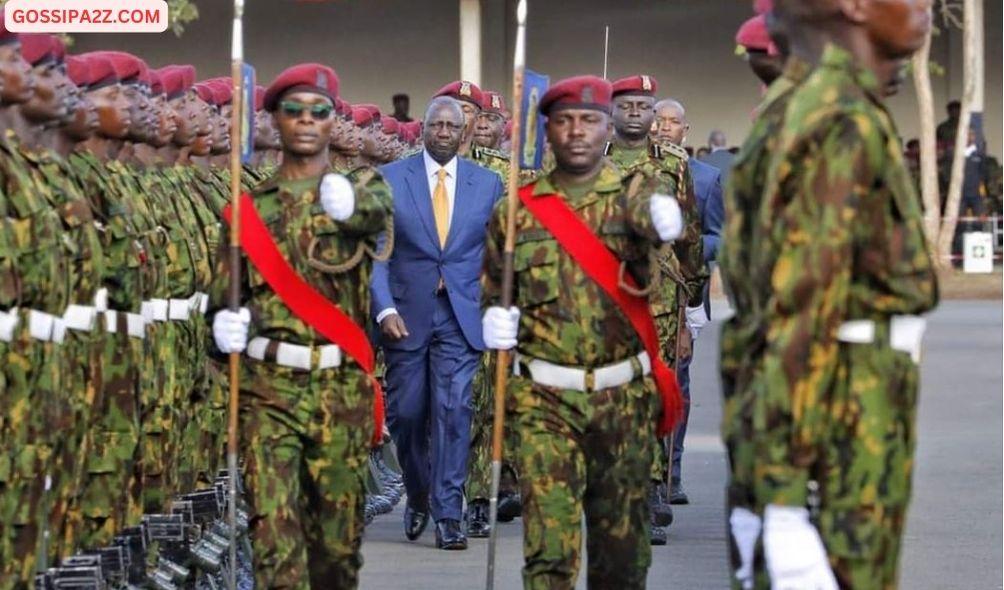Balancing Rights and Duties: The Right to Protest, Privacy, and Other Freedoms Police Cannot Fully Enjoy in Kenya
While police officers, like all citizens, possess constitutional rights, these rights are balanced with the demands of their law enforcement duties.
The question of whether Kenyan police officers can participate in protests and demonstrations has gained significant attention, especially in light of the protests that began in June.
This issue highlights the delicate balance between police officers’ rights as citizens and their obligations as law enforcers.
Under the National Police Service Act of 2011, Kenyan police officers are prohibited from participating in protests and demonstrations.
The law clearly states that officers are barred from engaging in activities that could compromise their neutrality or their ability to perform their duties impartially.
This restriction aims to ensure that police officers remain nonpartisan, maintaining public order without bias.
Restrictions on Participation in Protests and Demonstrations
Kenyan police officers are explicitly forbidden from taking part in protests, demonstrations, or any public assembly that could be seen as partisan or as compromising their impartiality in law enforcement.
The primary responsibility of the police is to maintain law and order, which includes overseeing public demonstrations to ensure they remain peaceful.
If a police officer were to join a protest, it would blur the line between law enforcer and participant, leading to potential conflicts of interest.
Such actions could undermine public trust in the police and erode their authority, as their ability to act impartially would come into question.
Restrictions on the Right to Free Association
Police officers in Kenya are not allowed to join or participate in trade unions or strikes.
As a critical service essential to societal functioning, the police force must remain operational at all times.
Allowing police officers to unionize or strike could disrupt security and law enforcement services, posing serious risks to public safety.
While other public servants might have the right to unionize and strike, police officers are expected to stay neutral and be continuously available to perform their duties.
This restriction ensures that policing services remain uninterrupted, especially during crises.
Restrictions on the Right to Free Speech
Police officers face limitations on their freedom of expression, particularly in matters that could undermine the authority or impartiality of the police service.
While they are free to hold personal opinions, officers must express them in ways that do not conflict with their professional responsibilities.
Public statements or actions perceived as partisan or as compromising their impartiality in enforcing the law are restricted.
As a result, police officers must be cautious in how they express their views, especially on social media or in public forums.
Statements that could be interpreted as politically biased or critical of the government could lead to disciplinary actions, as they might jeopardize the perceived neutrality of the police force.
Restrictions on the Right to Privacy
In the course of their duties, police officers may face limitations on their privacy, especially concerning searches, surveillance, and monitoring by superiors.
The nature of policing requires a high degree of accountability and transparency. To prevent misconduct or corruption, the police service has the authority to closely monitor officers’ actions, which may be more intrusive than what is allowed for ordinary citizens.
Officers might be subject to random searches, communication monitoring, and surveillance. While this may seem invasive, it is necessary to uphold the integrity of the police service and prevent abuses of power.
Restrictions on the Right to Fair Labour Practices
Although police officers are entitled to fair labor practices, such as reasonable working hours and rest periods, these rights can be limited when their services are critically needed.
The police force must remain operational 24/7, sometimes requiring overtime work or deployment under challenging conditions.
During emergencies or high-demand situations, officers may need to work extended hours without the same protections available to other workers.
Police officers might not always receive the same labor protections as other employees, particularly regarding overtime compensation and rest periods.
However, they are entitled to compensatory rest and other benefits to balance the demands of their role.
Why These Restrictions Are Necessary
The limitations on police officers’ rights are not arbitrary; they are carefully designed to balance personal freedoms with the need to maintain public order and trust in the police service.
These restrictions ensure that officers can perform their duties impartially, without real or perceived conflicts of interest.
- Maintaining Public Trust: The public must trust that the police act in everyone’s best interests, regardless of personal beliefs or affiliations. By restricting officers’ participation in protests, the law ensures they enforce the law without bias.
- Ensuring Continuous Service: Policing requires officers to be available at all times, especially during emergencies. Restrictions on strikes and unionization ensure there is no disruption in security services.
- Upholding Professionalism: The police service is held to higher standards due to its power and responsibility. Limitations on free speech and privacy prevent abuses of power and maintain professionalism within the force.
Conclusion
While Kenyan police officers, like all citizens, have constitutional rights, these rights are balanced against the demands of their role as law enforcers.
The restrictions on their rights are designed to ensure they perform their duties impartially, maintain public trust, and provide continuous service to the nation.
Understanding these limitations is crucial for both officers and the public, as it clarifies the expectations placed on officers and the reasons behind them, ultimately contributing to a more effective and trusted police service in Kenya.
Balancing Rights and Duties: The Right to Protest, Privacy, and Other Freedoms Police Cannot Fully Enjoy in Kenya
